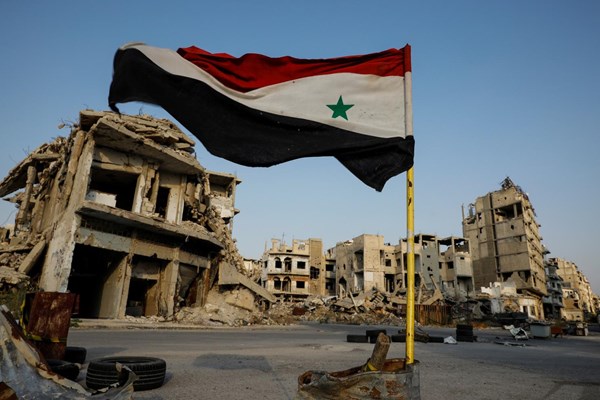Civil unrest brewing in Syria
The series of killings of prominent figures in the Syrian system has been crowned by an attack on National Defense Forces commander Ahmed Ismail, also known as Abou Haidra. His car exploded while moving through one of the districts of Damascus, killing him and his driver.
The Arabic-language media attributes the incident to the general discontent in Damascus, which is manifesting itself through violence and unrest. Something very similar is being observed in the southern provinces of Syria.
In addition to the National Defense Forces, Ismail belonged to one of Syria’s most secretive intelligence agencies – Air Force Intelligence. Responsibility for the act was claimed by the Qasioun Brigades, which published pictures of the site of the incident which were taken minutes after the bomb went off. The group stated that the explosive had been placed in Ismail’s car. In September this year, roughly the same fate was suffered by the car of Talib Ibrahim, a pro-regime political analyst. Behind the wheel at the time was his wife, who was injured. His son, who was also in the car, received minor wounds.
At the same time as the bombing which killed Ismail, a Syrian security forces checkpoint in Eastern Ghouta was attacked with guns and mortars. The attack may have been orchestrated by the same militarized group which killed Ismail.
The local media drew attention to the fact that only very little is known about the Qasioun Brigades, but they make themselves known from time to time in exactly this way – by attacking government figures in Damascus or in the suburbs of the capital. The attacks were accompanied by the appearance of anti-government slogans on the walls of houses. Eyewitnesses report that unknown persons have been handing out pamphlets around Damascus, calling on the Ba’ath government to release innocent prisoners, put an end to the system of governance based on ethno-confessional principles, and improve the quality of life.
Observers note that the tension could be linked to the fact that the Syrian Arab Army and the National Defense Forces, which hold a number of city quarters, have not kept their promises to release a number of prisoners apparently linked to the opposition. The agreements in question were made after pro-government forces took control of agricultural areas on the outskirts of Damascus.
Living conditions in the Syrian capital and other regions of Syria reflect the intensification of the economic crisis. The brochures distributed by the members of the “insurrection” speak about the need to provide the civilian population with electricity, fuel and other necessities. This is to be expected, since in December the Syrian pound reached a record low since 2011, when the Arab Spring was only beginning. The national currency had been kept stable until recently through external intervention. In this way, the death of the Syrian pound was postponed in 2015 when Russia’s leadership decided to dispatch a military contingent to the Arab Republic, officially “to oppose terrorist elements”, but in actual fact to keep Bashar al-Assad in power. However, it is becoming increasingly obvious that Syria needs other, non-military intervention – in its economy.
Without economic intervention, opposition sentiment will undoubtedly increase. For a long time already, there have been protests and attacks in Syria’s southern provinces, for example in Daraa, which is considered the cradle of the Syrian revolution. Observers consider the violence a natural reaction to the attempts by the government and security apparatus to eliminate local influence groups linked to the opposition after regaining control of the province in 2018, even though they were officially granted immunity, with Russia’s involvement. The Syrian government’s disregard for its commitments and the declining quality of life in the “reconciled regions” due to the withdrawal of NGOs and local councils could spark a new wave of anti-government sentiment, which only adds to the risk of a new outbreak of armed conflict.
